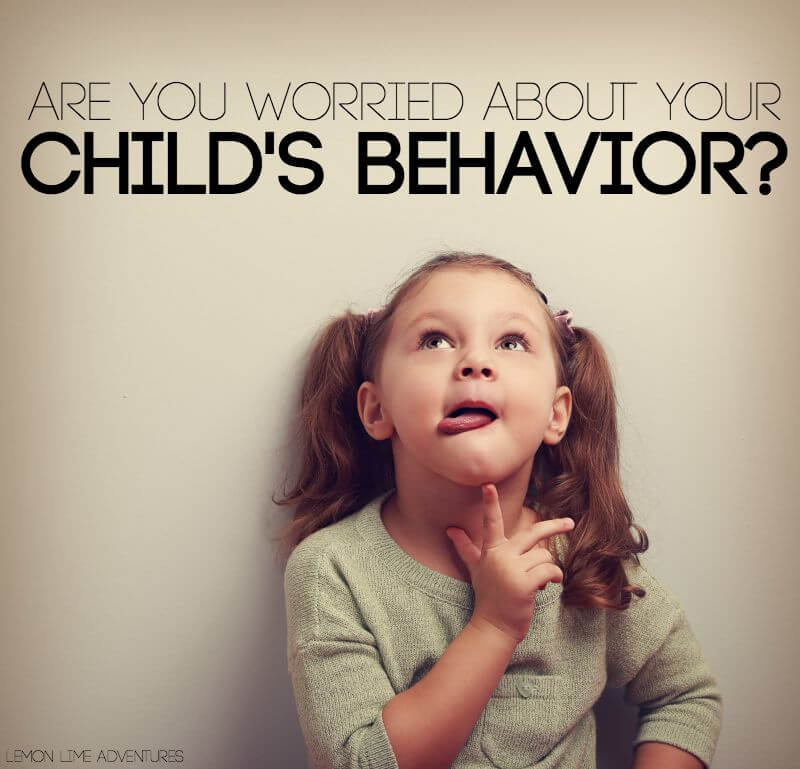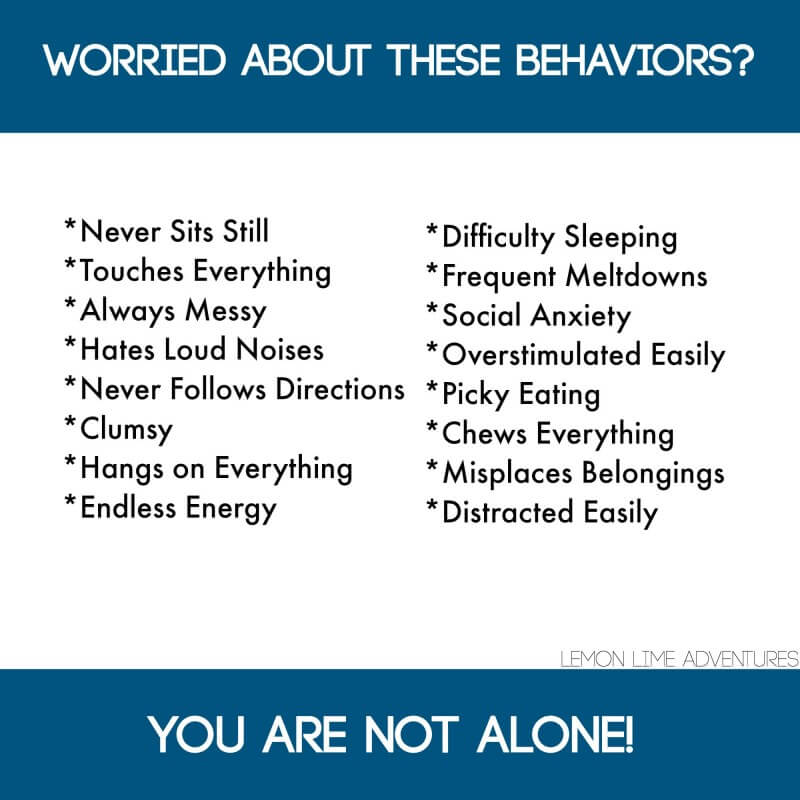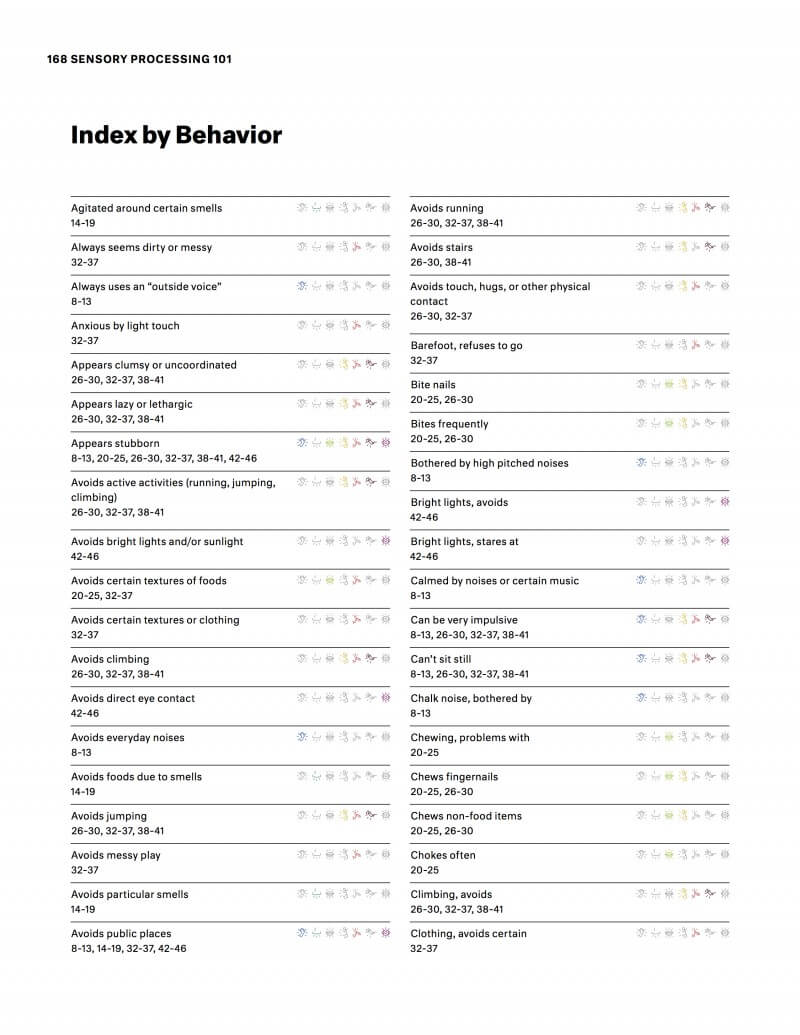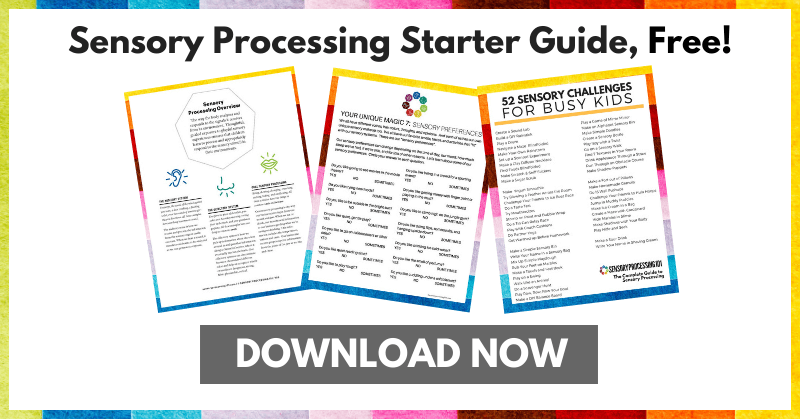What a ridiculous question? Right? Why would we even address such a question. I mean aren’t all children amazing and lovely and who gets to decide what “normal” is anyways. However, many of us still find ourselves asking the question “Is my child normal?” and worrying about our children’s behaviors.
We rarely say it out loud, but its there. We are constantly wanting the best for our children and in order to do that we find ourselves assessing, evaluating, and wondering this burning question more than we would like to admit!

Today, I am going to dig into the question that I get asked on a daily basis. This question is a question that comes up in my sensory support group, with my friends, and when I share posts on my Facebook page. I am not exaggerating when I say that this question comes up daily. Now, with the release of our new book, Sensory Processing 101, we are getting this question more and more.
In this 3 part series we are digging into some of the most frequent questions we get about sensory processing and we are sharing our story and resources with you! In the first post, we talked about the real reason your kid can’t sit still. We looked at some of the causes, some of the hidden sources, and I provided 3 excellent resources for where to turn next. We even gave you a freebie at the end! {click here if you missed this important post }
As soon as I hit publish on the last post, I immediately started getting comments about “normal” behavior. In fact, one of my best friends was in tears over the post and called me up to discuss her child’s behaviors after his first week of kindergarten. She was worried. She said that I basically described her child to a tee and she was worried. Should she be worried? Should she be concerned?
Today, I want to address some of these concerns. I hope to answer some of the questions you have had!
Behaviors You Might Be Concerned About
DISCLAIMER: As a teacher of 12 years and a parent with a child who struggles with many “typical” behaviors, I can say I have a lot of experience attempting to decode children’s behaviors. However, I will never say that I am an expert. I want to start by saying this is a candid description of behaviors and what I have learned over the past few years that has helped me in my journey. If you are truly concerned about your child and you feel their behaviors are hindering their daily functions, please, please reach out to your pediatrician and get a referral for an Occupational Therapist or Neuropsychologists!
Okay, now that we have gotten that out of the way. Let’s continue. The list of behaviors that could concern you can range from your child not being able to sit still to your child getting overly anxious during transitions. Maybe your child dislikes getting dirty or hates large crowds. The list goes on and on.
The list truly could go on and on! In fact, in our new book, we have over 8 pages of common behaviors that we get asked about frequently. We are parents. We are teachers. We are caregivers. We want what is best for our children, so we worry. We look for answers. We are not alone!
Looking at the above list of behaviors can be overwhelming and can stress you out, right? I am not sure of anyone that wouldn’t worry about those behaviors, especially if they are seeing all of them at the same time. We see these lists of red flags, we see posts about troubling behaviors and we immediately start to wonder if that is what is “wrong” with a child we know. We want to fix the problem and we are looking for answers.
OR
We see this list and we think… that is normal. That is being a kid. All kids do these things and there is nothing to worry about. This was me. This was the camp I was in for a very very long time! You see, my child had a lot of behaviors that I chalked up to developmental. I described him as “active”, “spirited”, and “particular”.

Should You Be Concerned?
So now what? Which camp should you be in? What should you worry about?
This question is more in-depth than a one page blog post. Initially, I want to say…. No! Don’t worry. Your child will be fine. However, that misses the children that need help. That minimizes the importance of recognizing issues that need to be addressed.
So, let’s dig deeper…. I am going to share my 3 part process for determining if a behavior is “normal” or if it causes more concern.
How I Determine the Answer to… Is My Child Normal
Step One: Is it Age Appropriate?
This one is really important! You see with my son, it was completely age appropriate that he couldn’t sit still in preschool and kindergarten. In fact, it didn’t raise concern in me because I knew about typical child development from my teacher training. I knew there was a spectrum and developmental continuum that all children fell within and his behaviors were not far from from the “norm.” If you are a teacher, you most likely have a trusted resource you use. If you are a parent, I have found this extensive resource of child and adolescent development extremely helpful. Here you can find chart for all ages, stages and forms of development (academic, behavioral, cognitive, and physical).
I am always asked… when did you “know”? When did I realize my son needed more help than I was giving him? For my son, I started to worry and be more concerned when his actions and behaviors are no longer age appropriate. It was no longer socially acceptable for my son to chew his shirt sleeves, run from authority in loud situations, or crawl on the classroom floor. These behaviors were indicators that there was something more going on. Something we weren’t addressing.
On the flip side, my daughter hates getting dirty. I mean hates it with a passion. She should love it, but she doesn’t. Does this mean something is “wrong” or she has a sensory disorder? NO! It means that she has a preference to avoid tactile input. It is the way her brain processes the information around her. She would much rather dump everything on the floor than get play dough on her hands. For her, she prefers to discover through sight, sound, and vestibular input. If I am starting to lose you, stay with me… I will get to the sensory processing piece in a bit.
Step Two: It is behavioral?
That sounds silly, right? Here we are talking about behaviors and I say, is it behavioral? So let me explain. If your child is doing something that concerns you (like not ever sitting still or not following oral directions) there might be a reason to be concerned, but first we have to do everything to rule out other causes.
As a parent or educator, we have to make sure we are using the most effective strategies. We have to look at our own skills and behaviors before waving the “not normal” flag. I am not a perfect parent nor was I a perfect teacher by any means, however I have always taken a deep look at what I am doing to be better in both areas. There are a few questions I always ask myself in both situations.
1. Are my expectation clear and known to the child?
2. Are the consequences to their actions clear and known ahead of time?
3. Have I set up the environment for the child to be successful?
4. Am I being consistent with my reactions, communication, and reactions?
5. Am I present and giving my full attention?
You see children do every single behavior for a reason! Everything they do has a baseline cause. Figuring that out can be quite the mystery but ruling out the cause of “consistent and loving” helps clear stage to determine if there is another hidden cause for the behavior. I struggle when people ask me to help them determine what they should do when their kids won’t listen. Why? Because I don’t know where you are on your journey. I don’t know if you are setting clear expectations. I don’t know if you are setting limits. I have no idea if you are being consistent. I just don’t know. I only know what I do.
Here’s the thing… I truly believe we are all doing the absolute best we know how to do. You are a good parent! You are a good teacher! You are a good caregiver! I know that! However, there are a lot of moving pieces to effective parenting and teaching. The questions I have here are a good start.
So what? What if you have covered all of this and the problems still exists? That’s when I move on the to detective phase…
Step Three: What Do They Want or Need?
Remember how I said all children have wants and needs and every behavior is for a reason. That is a really vague statement so let me try to explain. You wouldn’t be here if you weren’t trying to find the answer to that question.
When children “misbehave” or have “troubling behaviors”, they are screaming for help! They are looking for help in one or more areas. Sometimes they know what they want, however, usually they have no clue how to communicate their needs.
These needs can range from physical needs such as sleep, food, shelter, or water to emotional needs such as love, encouragement, trust, attention, and boundaries. But there’s another need that is often over looked….. sensory needs!
Yes… sensory needs! You see, your child needs input from over seven systems every single day. They both seek and avoid this input on a spectrum. Every child is different and every child will behave differently based on those needs. This does NOT mean something is wrong with them because they have this “sensory need”! It is part of normal child development. Remember, we have gathered eight pages in our new book of common behaviors that can be linked to sensory needs and preferences. This is just the start… .
But what if I have checked off this list and I am still worried? What if I have gone through my process and I am not satisfied with the answer? What then? Where do I turn?
I have one final question I always ask myself and my friends when the question “is my child normal” is asked…. “Does it hinder their daily life?”
Does Your Child’s Behavior Get In the Way of Their Happiness and Well-being?
This is important! This is when you want to look deeper, look for more help and search for more answers. This is when it becomes “not normal”. Next in the series, I will be talking a lot more about the word “disorder” what it means and where kids fall on the scale of sensory processing.
In the meantime, I encourage you to look at your child’s behaviors and go through the three steps. Are they developmentally appropriate, are there any changes you can make in your parenting/teaching strategies, and what are they trying to tell you?
You might enjoy these resources to help you determine the answer to those questions:
Decoding Everyday Behaviors
Troubling Behaviors | Is it just a phase?
Newbie’s Guide to Positive Parenting
If you are getting more curious about those sensory needs I mentioned, you might like our book, Sensory Processing 101. Click below to get a free 31-page starter guide to sensory processing, including the whole first chapter of the book.









Pingback: The One Thing That Will Change The Way You Look at Your Child - Lemon Lime Adventures
Fantastic post! You are so good at explaining these concepts in an understandable way Dayna! And I love the point about whether the behavior is hindering daily life. THANK YOU for this!
You are so wonderful! Thank you for the kind words and I am so happy this is helpful!
Hi my child is in gr1 now and his teacher is always telling me how he does not sit stil on his chair and is very unorganized he is at the school therapy but it does not seem to work. I am going to try this i hope i get a break through i feel drained as a mother i really want to help him my youngest is abit worse he is very hiperactive 3 years old now and some days it can get tough..
Pingback: The Newbie's Guide to Sensory Processing | A Basic Overview - Lemon Lime Adventures
Pingback: The Real Reason Your Kid Can’t Sit Still – pitrianiweb